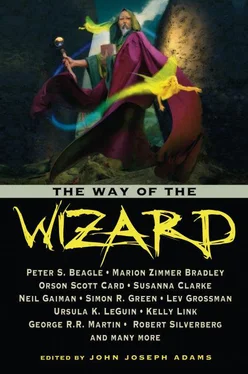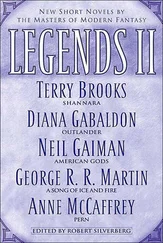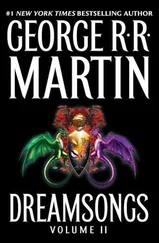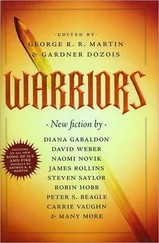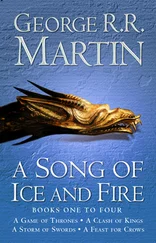The arm is swollen to almost twice its normal size, and although the wound is halfway between her elbow and her shoulder, she shrieks in agony when I gently manipulate her fingers. I want to give her something for her pain. Vague visions come to mind, images of something long and slender and needlelike flash briefly before my eyes. There must be something I can do, I think, something I can give her, some miracle that I employed when I was younger and the world was older, but I can no longer remember what it is.
I must do more than mask her pain, this much I still know, for infection has set in. The smell becomes stronger as I probe and she screams. Gang , I think suddenly: the word for her condition begins with gang —but there is another syllable and I cannot recall it, and even if I could recall it I can no longer cure it.
But she must have some surcease from her agony, she believes in my powers and she is suffering and my heart goes out to her. I mumble a chant, half-whispering and half-singing. She thinks I am calling up my ethereal servants from the Netherworld, that I am bringing my magic to bear on the problem, and because she needs to believe in something, in anything , because she is suffering such agony, I do not tell her that what I am really saying is God, just this one time, let me remember. Once, years, eons from now, I could have cured her; give me back the knowledge just for an hour, even for a minute. I did not ask to live backward in Time, but it is my curse and I have willingly borne it — but don’t let this poor old woman die because of it. Let me cure her, and then You can ransack my mind and take back my memories.
But God does not answer, and the woman keeps screaming, and finally I gently plaster mud on the wound to keep the flies away. There should be medicine too, it comes in bottles — (bottles? Is that the right word?) — but I don’t know how to make it, I don’t even remember its color or shape or texture, and I give the woman a root, and mutter a spell over it, and tell her to sleep with it between her breasts and to believe in its healing powers and soon the pain will subside.
She believes me — there is no earthly reason why she should, but I can see in her eyes that she does — and then she kisses my hands and presses the root to her bosom and wanders off, and somehow, for some reason, she does seem to be in less discomfort, though the stench of the wound lingers long after she has gone.
Then it is Lancelot’s turn. Next week or next month he will slay the Black Knight, but first I must bless his sword. He talks of things we said to each other yesterday, things of which I have no recollection, and I think of things we will say to each other tomorrow.
I stare into his dark brown eyes, for I alone know his secret, and I wonder if I should tell Arthur. I know they will fight a war over it, but I do not remember if I am the catalyst or if Guenivere herself confesses her infidelities, and I can no longer recall the outcome. I concentrate and try to see the future, but all I see is a city of towering steel and glass structures, and I cannot see Arthur or Lancelot anywhere, and then the image vanishes, and I still do not know whether I am to go to Arthur with my secret knowledge or keep my silence.
I realize that it has all happened, that the Round Table and the knights and even Arthur will soon be dust no matter what I say or do, but they are living forward in Time and this is of momentous import to them, even though I have watched it all pass and vanish before my eyes.
Lancelot is speaking now, wondering about the strength of his faith, the purity of his virtue, filled with self-doubt. He is not afraid to die at the hands of the Black Knight, but he is afraid to face his God if the reason for his death lies within himself. I continue to stare at him, this man who daily feels the bond of our friendship growing stronger while I daily find that I know him less and less, and finally I lay a hand on his shoulder and assure him that he will be victorious, that I have had a vision of the Black Knight lying dead upon the field of battle as Lancelot raises his bloody sword in victorious triumph.
Are you sure, Merlin, he asks doubtfully.
I tell him that I am sure. I could tell him more, tell him that I have seen the future, that I am losing it as quickly as I am learning the past, but he has problems of his own — and so, I realize, have I, for as I know less and less I must pave the way for that youthful Merlin who will remember nothing at all. It is he that I must consider — I speak of him in the third person, for I know nothing of him, and he can barely remember me, nor will he know Arthur or Lancelot or even the dark and twisted Modred — for as each of my days passes and Time continues to unwind, he will be less able to cope, less able to define even the problems he will face, let alone the solutions. I must give him a weapon with which to defend himself, a weapon that he can use and manipulate no matter how little he remembers of me, and the weapon I choose is superstition. Where once I worked miracles that were codified in books and natural law, now as their secrets vanish one by one, I must replace them with miracles that bedazzle the eye and terrify the heart, for only by securing the past can I guarantee the future, and I have already lived the future. I hope I was a good man, I would like to think I was, but I do not know. I examine my mind, I try to probe for weaknesses as I probe my patients’ bodies, searching for sources of infection, but I am only the sum of my experience, and my experience has vanished and I will have to settle for hoping that I disgraced neither myself nor my God.
After Lancelot leaves I get to my feet and walk around the castle, my mind filled with strange images, fleeting pictures that seem to make sense until I concentrate on them and then I find them incomprehensible. There are enormous armies clashing, armies larger than the entire populace of Arthur’s kingdom, and I know that I have seen them, I have actually stood on the battlefield, perhaps I even fought for one side or the other, but I do not recognize the colors they are wearing, and they use weaponry that seems like magic, true magic, to me.
I remember huge spacefaring ships, ships that sail the starways with neither canvas nor masts, and for a moment I think that this must surely be a dream, and then I seem to find myself standing at a small window, gazing out at the stars as we rush by them, and I see the rocky surfaces and swirling colors of distant worlds, and then I am back in the castle, and I feel a tremendous sense of poignancy and loss, as if I know that even the dream will never visit me again.
I decide to concentrate, to force myself to remember, but no images come to me, and I begin to feel like a foolish old man. Why am I doing this, I wonder. It was a dream and not a memory, for everyone knows that the stars are nothing but lights that God uses to illuminate the night sky, and they are tacked onto a cloak of black velvet, and the moment I realize this, I can no longer even recall what the starfaring ships looked like, and I know that soon I will not even remember that I once dreamed of them.
I continued to wander the castle, touching familiar objects to reassure myself: this pillar was here yesterday, it will be here tomorrow, it is eternal, it will be here forever. I find comfort in the constancy of physical things, things that are not as ephemeral as my memories, things that cannot be ripped from the Earth as easily as my past has been ripped from me. I stop before the church and read a small plaque. It is written in French, and it says that This Church was something by Arthur, King of the Britains. The fourth word makes no sense to me, and this distresses me, because I have always been able to read the plaque before, and then I remember that tomorrow morning I will ask Sir Hector whether the word means built or constructed, and he will reply that it means dedicated , and I will know that for the rest of my life.
Читать дальше
